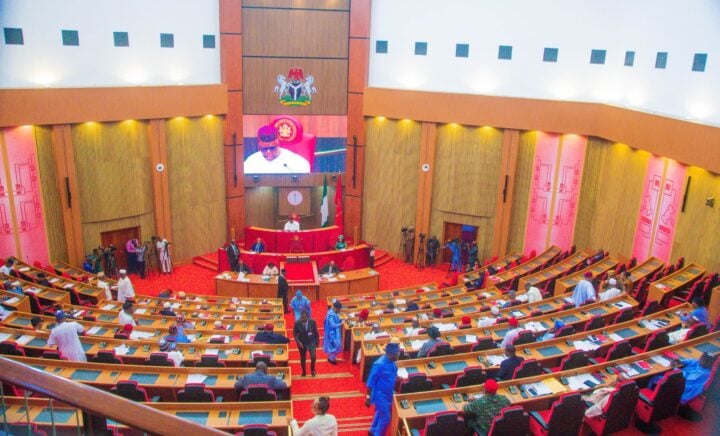Akin Oyebode, commissioner for finance in Ekiti State, says the final documentation of the tax reform bills should have been sent to the governors for scrutiny before being released to the national assembly.
Oyebode spoke on Monday during the Global Business Report on Arise News.
He said the current tax laws, handed down by the colonial government, are outdated, making the need for reform undeniable.
“Of course, with reform, there are various levels of engagement. And I think the committee, to be fair to them, did quite a bit of engagement,” he said.
Advertisement
“I think where they could have done a bit more was in exposing the draft bills to various stakeholder groups like the Governor’s Forum, like the Commissioners Forum, etc., before the Joint Tax Board, for whom one of those bills directly affects.
“Before the bills went to the National Assembly for consideration, I think that’s a large part of why there seems to be a gap.
“There was some consultation, but consultation doesn’t also show that the final document, when you have the final document, you also show those stakeholders that, look, this is what is going to the National Assembly, what are your concerns, what are your issues.
Advertisement
“Even if you are not going to change them, but at least let them air their opinions before the bills go to the National Assembly.”
‘40% DERIVATION RATE WILL BENEFIT ALL STATES AGAINST 60%’
Oyebode said 40 percent derivation is better than 60 percent, as stated in the bill, with the hope that everyone earns more and there’s less disruption.
In the proposed bill, 60 percent of the VAT revenue would be distributed based on derivation, while 20 percent is shared based on population sizes and the other 20 percent is shared equally among the states — as a result, where VAT is collected becomes as crucial as the amount collected, potentially favouring regions where consumption activities are concentrated.
Advertisement
Oyebode advised that the figures in the bill should be fully provided to the public by the committee for proper scrutiny.
“So, it’s not enough to say we’ve done these numbers. You need to show those numbers,” he said.
“Now, we’ve seen numbers using the National Living Standards Study that the NBS does, which gives you a good sense of consumption patterns across the country.
“The proposal says the derivation should move from 20% to 60%. My view is that that’s a pretty steep move in one go.
Advertisement
“I think two things can be done. One is that the Revenue Mobilization and Fiscal Commission should be leading this conversation because constitutionally, they are the body that speaks to revenue distribution and the indices and the methodology.
“In my opinion, at 40 percent derivation, the disruption is much less, and it’s much less to, maybe two or three states will earn less.
Advertisement
“So, everybody earns more. That’s assuming 90 percent goes to sub-nationals and derivation is not more than 40% of that.”
He advised that there should be a focus on not making value-added tax into sales tax, as it has been in the past.
Advertisement
“I think the bigger issue should be that today, we say we practice VAT, but it’s really a sales or consumption tax,” he said.
“It’s really a sales tax because at every layer of the transaction, everybody charges the full amount. The question should be how to ensure this is actually a value-added tax, which will bring down the overall cost of the tax.
Advertisement
“When we talk about inflationary pressure, my response is always that today, it’s a sales tax. If we switch from sales to VAT, even if VAT goes up, as long as it’s administered properly, the effect on cost today will be less.
“If you think about the exemptions, in terms of food, critical health care, etc., you’ll see those things that really matter have already been exempted.”
Oyebode concluded that the exemptions are significant, and the whole idea is to reduce what you tax, make it more transparent, and bring more people in.









